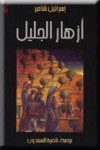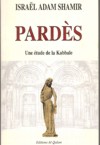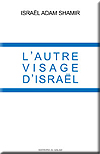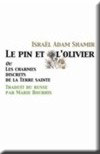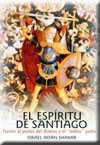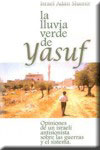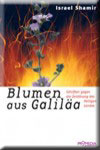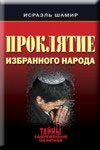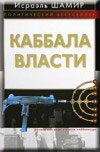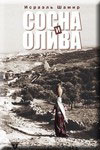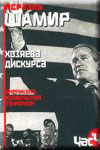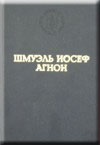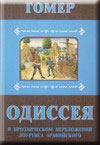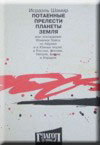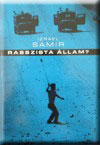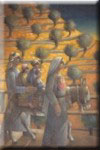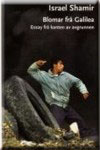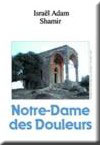Holocaust Denial and Jewish Influence on the Catholic Church
Bishop Richard Williamson
Trudie Pert
On April 16th, 2010, Bishop Richard Williamson, is scheduled to go on trial in Regensburg , Germany for the hate crime of Holocaust denial. While Bishop Williamson had expressed doubts about the Holocaust since the late 1980’s it was not until November, 2008, during comments he made on a Swedish television interview that he was charged with the crime of Holocaust denial. Because he refused to pay the fine of $16,000 he has been ordered to stand trial. If he decides to go to Germany , he can be convicted for the crime of “Volksverhetzung,” (incitement of hatred for a people), as was Ernst Zündel.
Bishop Williamson is a member of the Society of St. Pius X, a traditionalist order founded in 1970 in protest to the liberalizing effects of Vatican II. The SSPX has sought to preserve the timeless beliefs and practices of the Catholic Church amidst the alterations to belief and ritual that were introduced in the middle of the last century by Vatican II. The Society has 510 priests working in 31 countries, and 2 million members. Bishop Williamson, British born and Cambridge educated, is one of four bishops consecrated in 1988 by SSPX founder, Archbishop Marcel Lefebvre. He is an academic, fluent in French, German, and Spanish. Until he was appointed rector of the South American seminary in La Reja, Argentina , in 2003, he was rector of the North American seminary in Winona , Minnesota for many years. Because of his statements on the Holocaust, he has been relieved of his position and silenced by the Church.
If you are non-Jewish and are of European descent, then you are affiliated with the Catholic Church. No matter what your current beliefs, your family, at least for a thousand years, until the Reformation, was Catholic. The Catholic Church unified, and civilized your ancestors and permitted the art, science, economy, and morality of Europe to flourish. In addition to protecting their souls, the Catholic Church defended your ancestors from non-European aliens: from invading Moslems, and from Jewish influence on culture. In the U.S. , Catholicism is still the largest single religious denomination with 70 million believers. In Western Europe the number is 211,466 million, 55% of the population. However, instead of guarding its members, as it did in the past, the Church has now joined their historic adversary.
In his book, Separation and its Discontents: Toward an Evolutionary Theory of Anti-Semitism, Kevin MacDonald devotes considerable space (short version) to an analysis of the Catholic Church’s relationship with the Jews, beginning in Roman times and continuing to the National Socialist era. He suggests that early anti-Semitism by the Church Fathers was a defensive response to Jewish economic domination and enslavement of non-Jews in the 4th century.
Catholic institutional anti-Semitism, he implies, grew out of both theology and ethnic conflict. The Church asserted as doctrine that by rejecting Jesus as the Messiah, the Jews had rejected God and had forfeited their status as God's Chosen People. The official Church doctrine was that Jews should be tolerated in a subservient, powerless role because of their usefulness as testimony to the truth of Christianity.
By adopting this theology, the Church had erected a powerful theological rationale for protecting and civilizing the European peoples. The traditionalist view is that these definitive beliefs about Jews cannot be altered. They are forever part of Church dogma. It would therefore not be surprising to find that traditionalist Catholics like Bishop Williamson may have negative attitudes about Jews or about Jewish influence on the Catholic Church since World War II.
The reason that the fundamental, dogmatic teachings of the Church did not change over time is because the Catholic Church believed them to be Divine Revelation. However, directives and writings of the Council of Vatican II (1962–65) often contradict the eternal teachings of the Church. Especially problematic are those publications re-defining the Church’s position toward the Jews.
Before Vatican II, the Catholic doctrine was that the Scriptures were infallible because they were dictated by the Holy Ghost Beginning in the 19th Century, however, the interpretive method of “historicism” began to apply new criteria to the study of the sacred texts. In interpreting Scripture, historicism took into account archeology, the natural sciences, and contemporary social and psychological theories that proposed to explain the behavior of society and individuals. One of the theologians who defended the relativistic method of istoricism at Vatican II was Josef Ratzinger, now Pope Benedict XVI.
In 2001, the Pontifical Biblical Commission (PBC), an official part of the Congregation for the Faith in the Vatican , published the book, The Hebrew People and its Holy Scriptures in the Christian Bible. The book succinctly describes the radical changes in the Church’s position toward the Jews during and after Vatican II. Cardinal Ratzinger was the president of the PBC. Everything in the book, therefore, was written under his personal direction. His Preface represents an extra seal of endorsement and support.
The introduction to The Hebrew People and its Holy Scriptures in the Christian Bible defends the idea that because of the imprisonment and death of so many Jews in the Nazi concentration camps in WW II, it is essential to re-examine the spiritual relations between Christians and Jews. The book’s aim is to “advance the dialogue between Christians and Jews” by interpreting the Bible in a relativistic manner pleasing to Jewish sensibilities.
The result is a new conception for relations of the Church with the Jews. Actually, with respect to the Jews, a new perspective had already been suggested by the Austrian Catholic theologian, Johann Baptist Metz. (Incidentally, Father Metz was considered a “Catholic spokesman” for the Frankfurt School .) Not only did he assume the relativism and the deconstructive methods of the Frankfurt School , he also placed the Holocaust, using the synonym “ Auschwitz ,” into the center of history. According to Metz , Scripture required reinterpretation and revitalization after the Holocaust. This coincides with the thinking of the Pontifical Biblical Commission.
The Pontifical Biblical Commission denies both the Old and New Testament as sources of Revelation. “The change caused by the extermination of the Jews has stimulated all the Churches to completely re-think their relations with Judaism and, as a consequence, to reconsider their interpretation of the Hebrew Bible, the Old Testament. Some have asked themselves whether Christians should repent for their appropriation of the Hebrew Bible and a (Christian) interpretation that no Jew could accept. Should Christians, then, read the Bible with the Hebrews in order to respect its Jewish origin?” (pp 54-5) Should the events of World War II change the bi-millennial interpretation of the Church about Revelation? One would think that what was true before the catastrophe would remain true afterward. But the answer of the PBC is implicitly in the affirmative: Jews are to be the final authority in Biblical interpretation.
Not only do the authors of, The Hebrew People and its Holy Scriptures In The Christian Church, give Jews the final authority on Biblical interpretation, they make a number of assertions totally at odds with traditional Catholic teaching. They allege that the present-day Jewish religion is the true heir of the divine promise of the Old Testament. For example, the Pontifical Biblical Commission states, “Far from replacing Israel , the [Catholic] Church remains in solidarity with it.” (p. 152).
The Catholic Church has always taught that according to Revelation, the Old Covenant was revoked with the coming of Christ, and that the true heir of the Old Covenant is the Catholic Church.
In advancing this thesis, the PBC does not distinguish between what is religion and what is race in Judaism. Instead it tries to make the Hebrew people, in the racial sense, coincide with the elect people, in the religious sense. If the Old Covenant is still valid, then it is a small step to the conclusion that the Holocaust was a heinous crime against God’s Chosen .
In addition to corrupting the Catholic teaching about the Old and New Covenant, the PBC has perverted Catholic teaching regarding the crime of Deicide. It is perennial Catholic teaching that the guilt and the penalty of certain crimes against God are, by their very nature, transferred to future generations — for example, Original Sin and the sin of the Tower if Babel. Such also was the sin of Deicide. The traditional teaching of the Church was that the guilt and the punishment demanded by justice for the murder of Jesus were assumed voluntarily by the Jews and were laid upon their future generations. This was the constant interpretation of the Catholic Church until Vatican Council II.
The PBC, however, offers an opinion which is the very opposite of this Catholic teaching. That is, it alleges that the Gospels were not written objectively and cannot be considered a part of Divine Revelation. Accordingly there was no crime of Deicide, no such crime was committed by the Jews as a people, and the guilt and punishment of that crime did not fall upon the future generations of the Jews. So keen are they to seek the pardon and approval of Jews that relativist Catholic theologians seem ready to accept the notion of Deicide not by, but of the Jews. The religion of the Holocaust is spreading from the Synagogue to the Cathedral. And Holocaust denial is its gravest sin.
The reflections and actions of John Paul II and Benedict XVI concerning the Jews are condemned by the binding words of the Third Ecumenical Lateran Council, (1179), which pronounced an anathema on those who, preferring the Jews to the Christians, would receive the testimony of Jews against Christians and not that of Christians against Jews.
Speaking about Bishop Richard Williamson, His Holiness, Bishop of Rome and Vicar of Jesus Christ, Successor of St. Peter, Prince of the Apostles, Pope Benedict XVI stated in U.S. News and World Report, February 12, 2009:
“The hatred and contempt for men, women and children that was manifested in the Shoah was a crime against God and against humanity," Benedict told the visiting leaders, using the Hebrew term for the Holocaust. "This should be clear to everyone, especially to those standing in the tradition of the Holy Scriptures.”
"It is beyond question that any denial or minimization of this terrible crime is intolerable and altogether unacceptable," he said during the meeting in the Vatican 's Apostolic Palace .
Jewish leaders applauded his comments, saying the crisis with the church that had been sparked by Bishop Richard Williamson's comments was over.
Abraham Foxman, a Holocaust survivor and the national director of the Anti-Defamation League, said the Vatican should excommunicate Williamson again because of his remarks.



